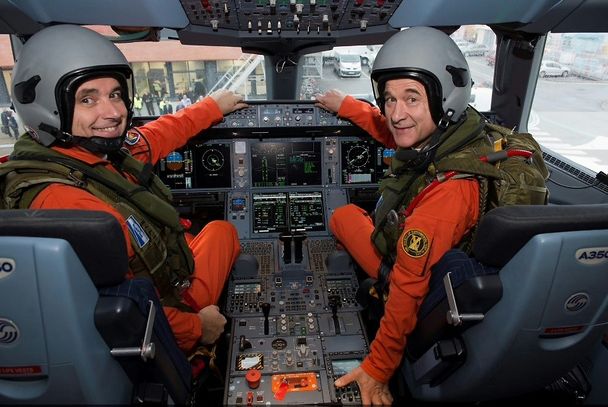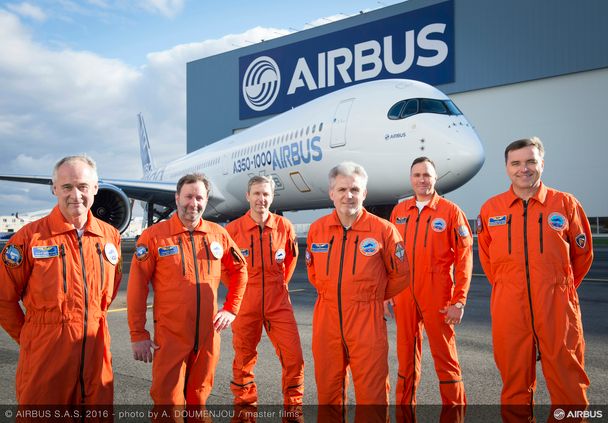Airbus careers bring people to new heights

Test pilot Frank Chapman, who has made vital contributions to developmental flight testing during his time at Airbus, has advice for aviation’s next generation
When Frank Chapman took A350 XWB-series test aircraft through their paces during an extensive certification campaign, he was representing hundreds of fellow Airbus employees who put their all into this game-changing next-generation widebody jetliner.
Airbus experimental test pilots – counting Chapman among their ranks, who joined Airbus after serving with UK Royal Air Force and Monarch Airlines – are involved from the beginning of a new development programme, using their expertise for the design, including cockpit layouts and controls, as well as aircraft flying qualities.
“Once we enter the flying phase, we need to check the handling and operational characteristics, and eventually make sure the airplane is safe and fit for its purpose – i.e. carrying passengers,” said Chapman, who was deeply involved in A350 XWB development as a project test pilot. “This process takes between a year and 18 months, depending on the nature of the programme.”
Reflection and advice
Chapman says the job’s most satisfying aspect is being a member of a dynamic engineering team, beginning with the design phase and continuing until entry in service.
Based on his career, Chapman offered some advice for those considering a future in aviation. “It is a great field in which to be involved, covering such diverse activity as design, development, engineering and air traffic control…along with flying, of course. But keep your mind open to all the possibilities that are out there. Don't discount anything,” he said.
Chapman has worked at Airbus since 2004. Before joining the company, he had served in the Royal Air Force. Having graduated with a Master’s in Engineering Science from St Catherine's College, Oxford, he went on to complete his test pilot training in France.
- Read how Airbus aircraft undergo their tests and certification campaigns
- Find out more about Airbus design and engineering network
